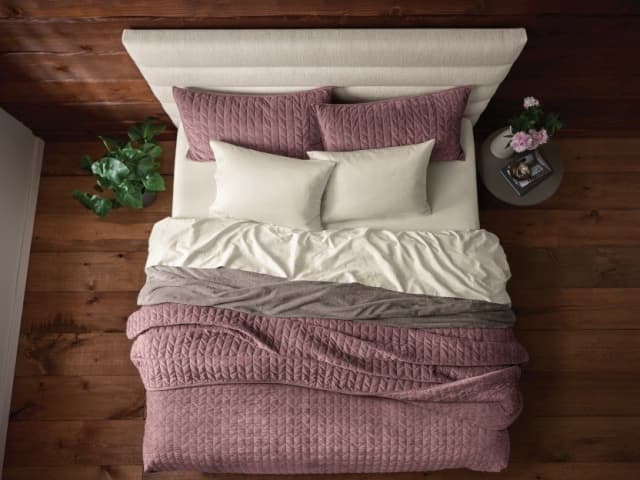When you think about getting a great night's sleep, the question of how to care for and clean your bedding is probably not the first thing that comes to mind — but maybe it ought to be.
Knowing how often you should wash, dry, store and protect your sheets, pillowcases, blankets, duvets and comforters ensures that your bed is a clean, well-cared-for haven for you to get the proper shuteye.
Plus, your bed linens last longer when you care for them correctly.
We asked the bedding team at Sleep Number for their best tips and tricks when it comes to caring for all your bedclothes and bedding materials. Here's what they advise:
When and How to Wash your Sheets
Most people ask themselves this question at some point in their life: How often should you wash your sheets?
If you're changing your sheets weekly, you may be in the minority, even though experts say that's about right.
Washing sheets every seven to ten days is optimal according to the Good Housekeeping Institute. A survey at Mattress Advisor found most people wash their sheets every 24 days. Men tend to wait, on average, ten days longer than women to wash their sheets.
A good rule of thumb is the more people, pets and activities you have in and on your bed, the more frequently you should wash your bed linens.
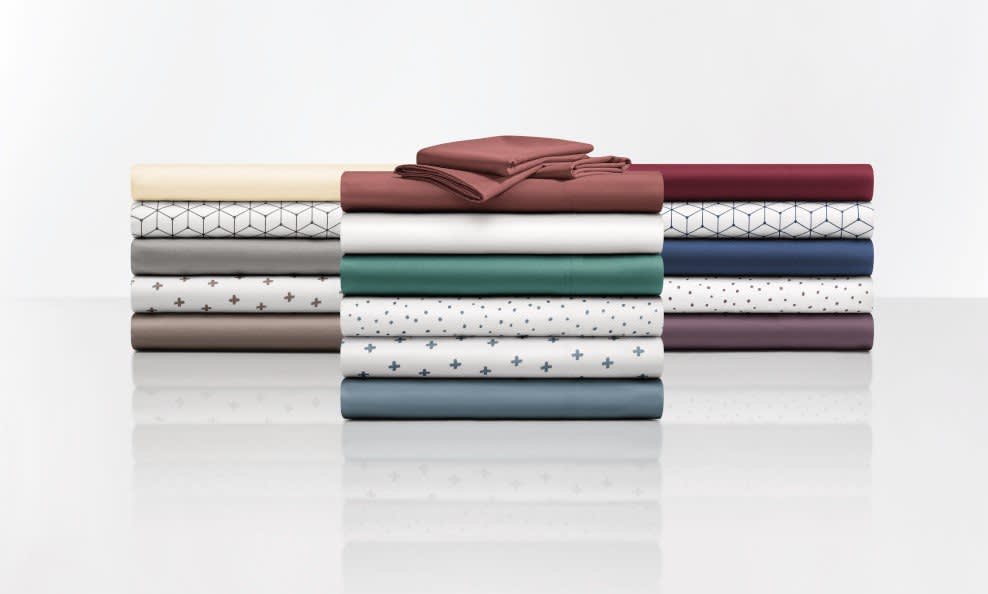
How to Clean Your Sheets the Right Way
First, when it comes to washing and drying any of your bed sheets, follow the specific care instructions from the manufacturer. Certain fabrics like silk, linen and bamboo may require special care.
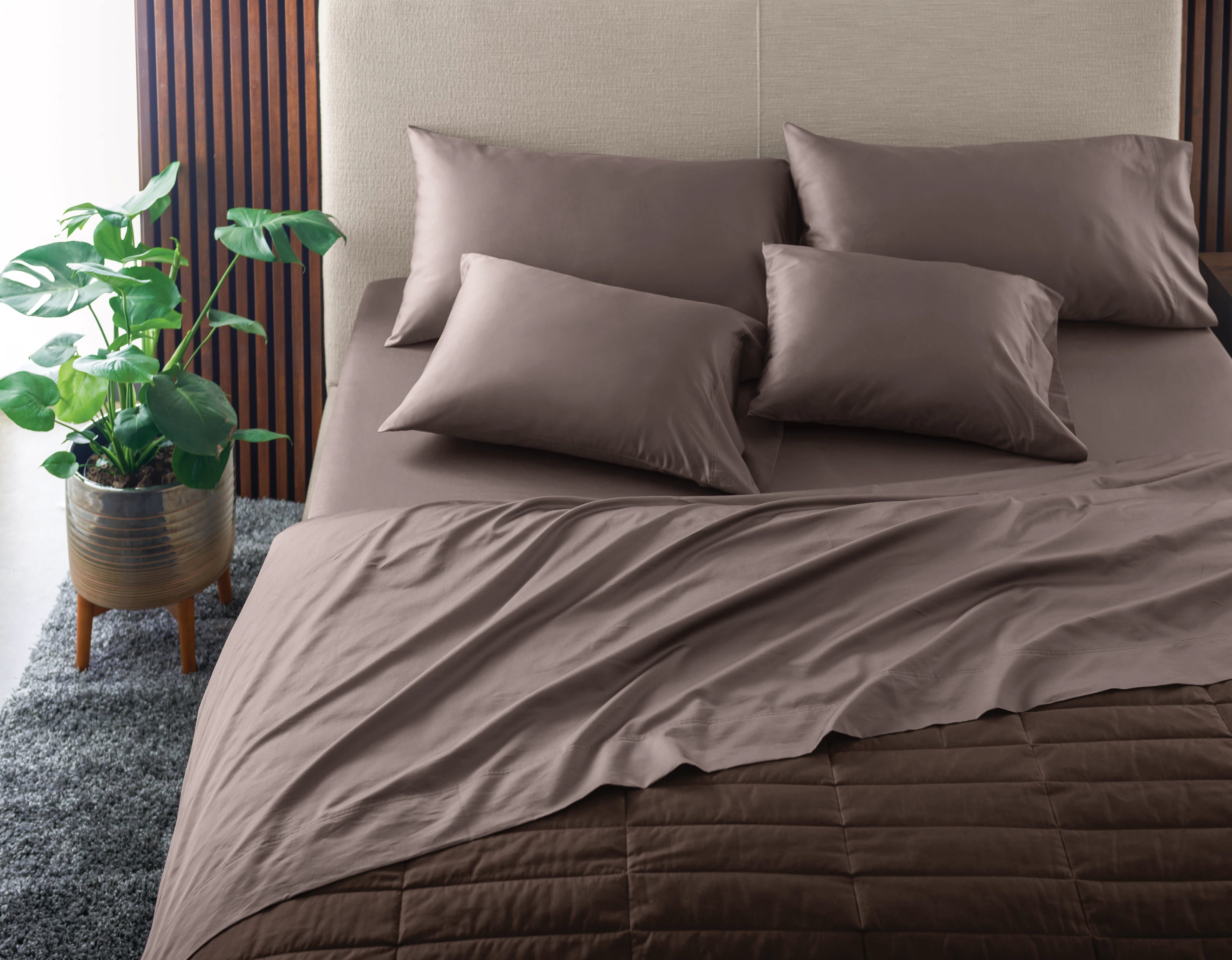
Aside from that, there are a few rules you should stick with when washing your sheets:
-
Wash sheets separately from any other laundry, especially towels, since the friction of other items in the machine can cause pilling and wear down the fabric sooner
-
Always wash sheets in warm or cold water, never hot, which is too harsh
-
Don't use fabric softener on sheets, since it wears out the fabric and builds up a residue that's hard to remove
-
Skip the bleach, it's too harsh for delicate sheet fabric
-
Never pour detergent directly on sheets as it's too concentrated and could discolor fabric
Tips on How to Dry Sheets
When it comes to throwing sheets in the dryer, a few tips will keep your bed sheets in good standing.
Try removing them while just slightly damp to help prevent wrinkles. There's a fine line here between wet and damp sheets, so you're looking for just the slightest feel of dampness where you almost must touch them once or twice to assess if they still feel damp.
Place your damp sheets on the bed and let them air dry fully for less wrinkling. Keep any blankets or duvets off until sheets are fully dry.
Refrain from using dryer sheets. As with fabric softener, the sheets tend to wear down fabric fibers more quickly and they become coated with residue that dulls and greys your sheets.
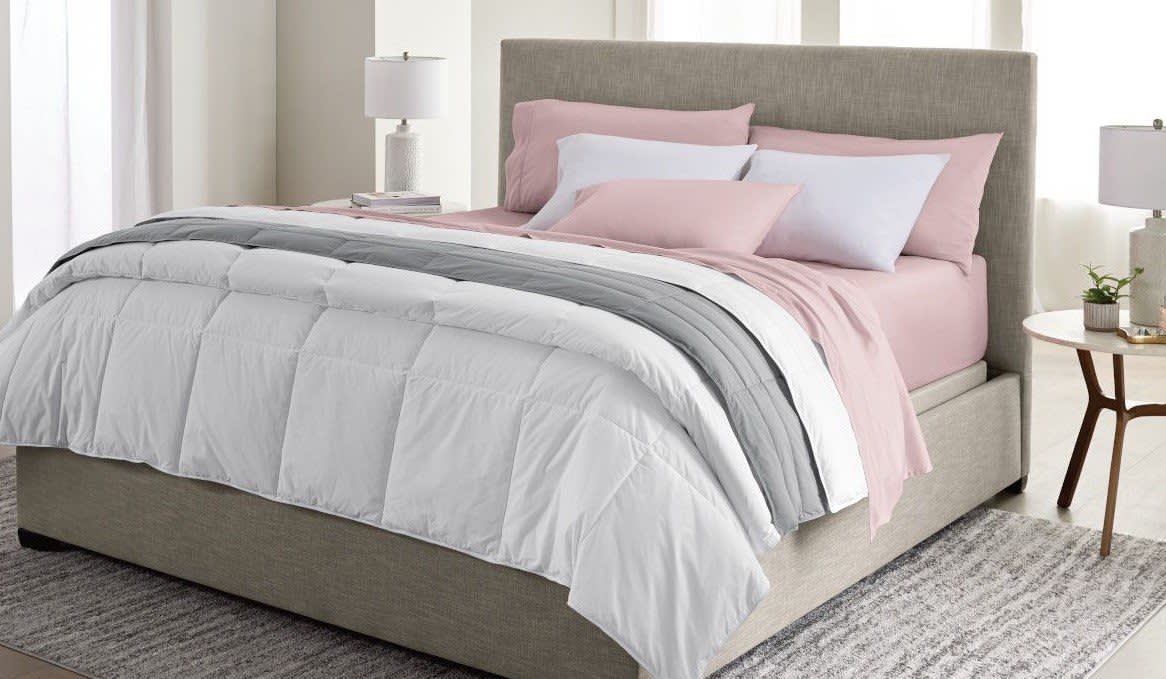
Don't over-dry your sheets. A scorched fabric smell indicates too high of a heat for too long, which wears sheets out quicker.
Finally, for fresh, sweet-smelling sheets, line dry them if you have access to a clothesline and a nice day. Drying sheets outside, maybe like your mom used to do, provides them with a wrinkle-free, static-free, fresh-smelling finish.
How to Store Your Sheets
Ultimately, having several full sets of sheets for each of your beds helps you change sheets weekly.
When storing your sheets, keep them in a cool, well-ventilated area. A linen closet shelf or the top shelf of a bedroom closet works well.
Never store them in plastic containers or compressed plastic storage bags as the lack of air ventilation could cause fabric to discolor.
Keep Your Pillow Perfect
Pillows shouldn't be washed and dried. Typically, their stuffing will only bunch when washed in the washing machine, regardless of whether they're synthetic or natural feathers.
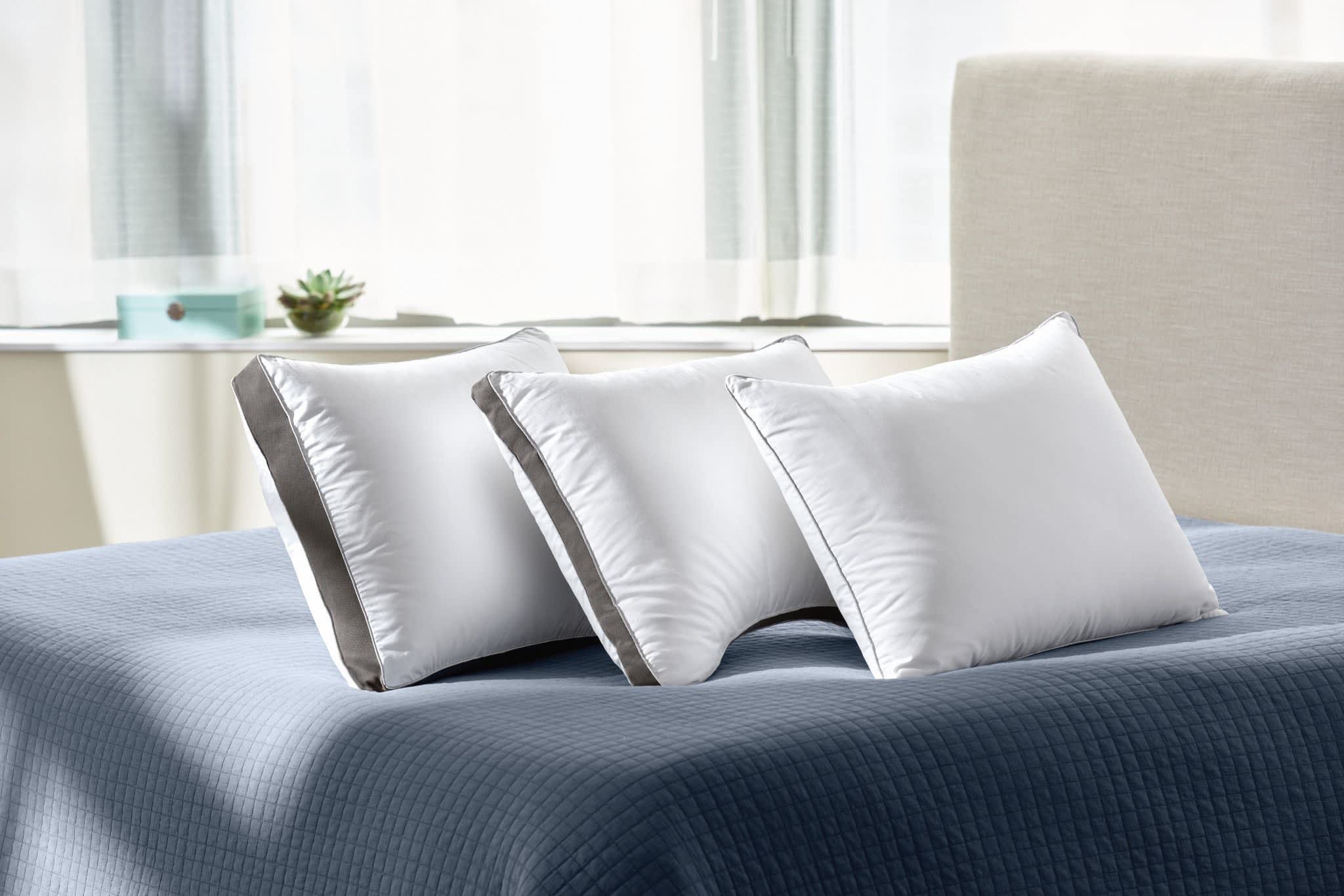
Instead, use a removable pillow protector. You can toss this in the wash with your sheets. Pillow protectors work like mattress pads to help protect your more expensive bedding like your mattress and pillow.
Fluff your pillows daily when you make your bed to restore its loft and maintain resiliency.
Replace your pillows every two years. After that, experts say, about 10% of your pillow weight is made up of dead skin cells and dust mites.
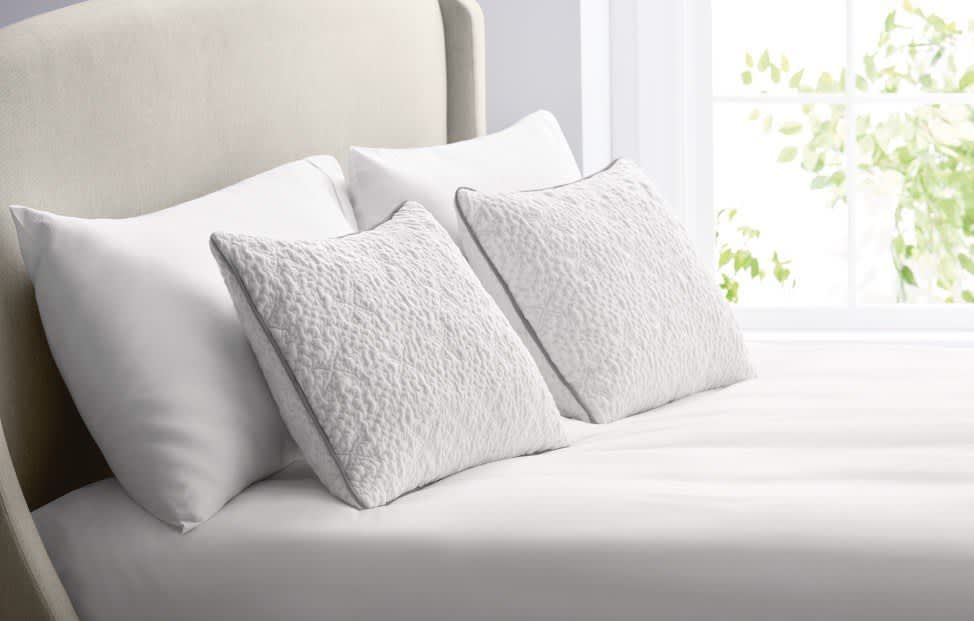
Care for Your Mattress Pads and Toppers
Most experts recommend using a mattress topper or pad to protect your mattress and help it last longer.
Mattress pads are the easiest way to protect and keep a mattress clean. Mattress pads protect against spills and accidents and are designed to be easily laundered at home. Consider purchasing a pair of mattress pads, one for wash, one for wear. This way your mattress investment is always protected.
To protect your mattress, the bedding experts at Sleep Number recommend a mattress pad or protector, like this Total Protection Mattress Pad. Other toppers or layers are purchased primarily for comfort, not protection. However, if you have a topper, here are some tips to keep it clean since most toppers are not machine washable.
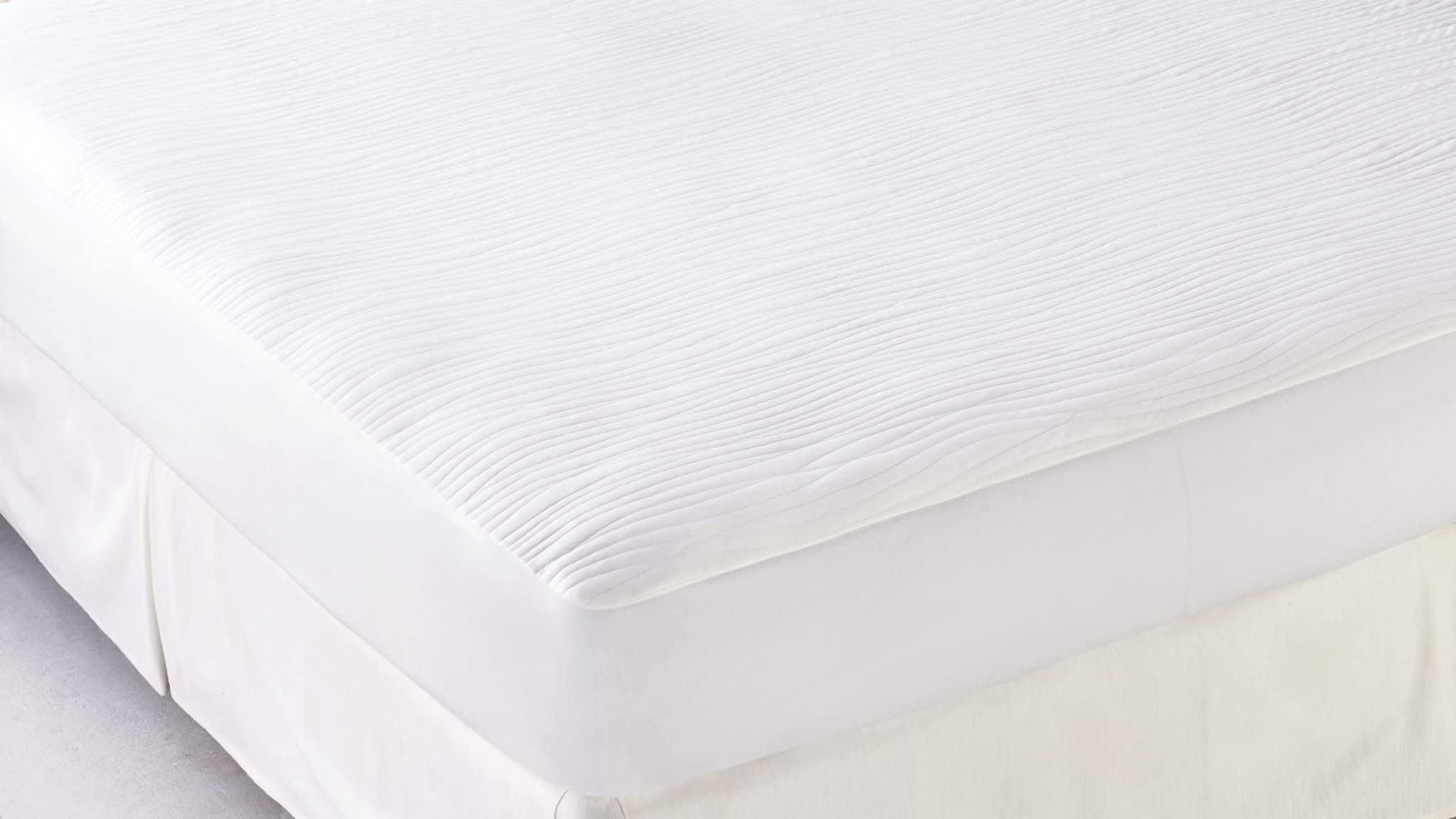
Toppers must typically be spot cleaned with equal parts vinegar and water. You can also treat stains with a paste of baking soda and water. Wipe with a wet cloth and air dry.
If your topper or pad has a removable cover, this can usually be machine washed. Check instructions to be sure. You can also use the vacuum attachment to remove dust.
How to Clean Comforters and Duvet Covers
A quality down comforter can last up to 10 years. To help ensure yours has a long life, read all cleaning instructions carefully.

Cover your down comforter with a duvet cover to keep it clean and help it last longer. Duvet covers protect expensive down comforters and reduce the need for frequent washing. For example, you can wash your down comforter every few months while you may need to clean your duvet cover monthly.
To clean down comforters, use a pre-rinse, if possible, to saturate the material before adding detergent. Skip powder detergent as it doesn't penetrate as well as liquid.
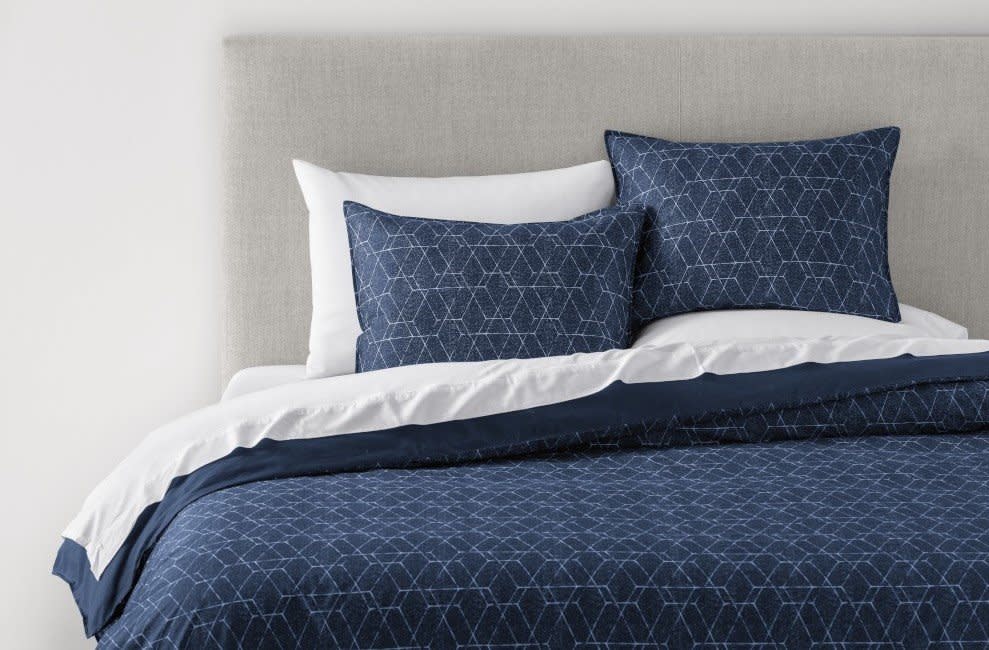
Use a low temperature and a delicate or down setting if your washing machine has it. An additional post-wash rinse is a good idea because comforters, especially queen- and king-sized, are bulky.
Depending on your machine, you may have to take your comforter to a laundromat to use a larger commercial machine. Using the right machine allows for a proper wash with plenty of room to rinse.
Tumble dry your comforter on low with dryer balls or clean tennis balls to help remove static and fluff the down again.
Care for Yourself and Your Bedding for Better Sleep
Certain hair and skincare products like lotions and oils can discolor or stain bedding so try to remove them before slipping between the sheets. Likewise, removing makeup before bed helps prevent pillowcase stains.
Bedding is an investment, so taking good care of your bed sheets, pillowcases, comforters and duvet covers by washing and drying the right way to help maximize their life span.
Like diet and exercise, quality sleep is essential for optimal well-being and performance. Because everyone's sleep needs are different, Sleep Number® smart beds, with SleepIQ® technology inside, sense your movements and automatically adjust firmness, comfort and support to keep you both sleeping comfortably. Find your Sleep Number® setting for your best possible night's sleep.
ABOUT THE AUTHOR
Jennifer Nelson is a Florida-based health writer who writes about all things sleep hygiene. She writes for The National Sleep Foundation, Phillips, Tom's Guide, Southern Living, Health, AARP, and others.
Sleep Science
What Are You Wearing To Bed Tonight?
Cotton, silk, flannel … or your birthday suit? What to wear for a great sleep.
Read more about What Are You Wearing To Bed Tonight?Sleep Science
Get Cozy with Responsibly-Made Bedding
The terms sustainable bedding and eco-friendly bedding refer to both the process of making the items and what they're made of. Knowing the origins of your sheets, pillows down comforters and more can help you get a better night's sleep.
Read more about Get Cozy with Responsibly-Made Bedding